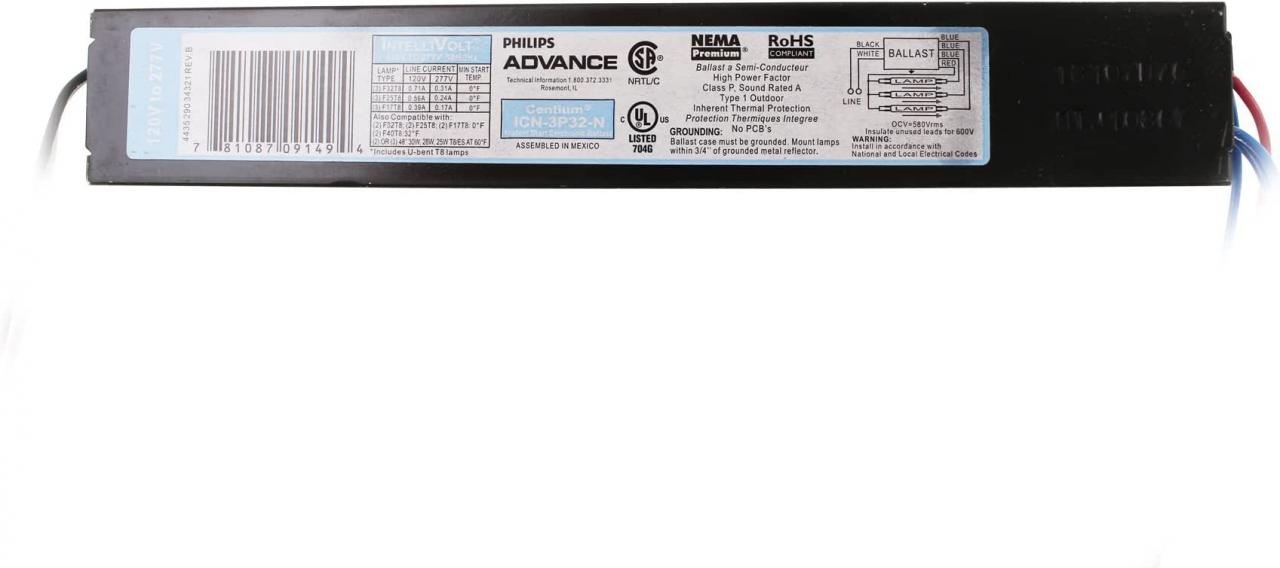The Advance ICN-3P32-N is a versatile electronic fluorescent ballast designed to power three F32T8 lamps at 28 watts each, with an input voltage range of 120-277V. It offers instant start and parallel lamp connection for reliable and energy-efficient operation. Let’s explore the potential advantages and disadvantages of this ballast.

Pros
Energy-efficient: The ICN-3P32-N is designed to provide energy savings compared to standard magnetic ballasts.
Versatile lamp compatibility: It can operate a variety of T8 lamps, including F17T8, F25T8, F32T8, F32T8/ES, and F40T8.
Wide voltage range: The ballast can be used with input voltages ranging from 120V to 277V, making it suitable for various commercial and industrial applications.
Compact design: With dimensions of 9.5″ (L) x 1.3″ (W) x 1.0″ (H), the ICN-3P32-N offers a space-saving solution for installations.
Reliable performance: Philips Advance is a trusted brand known for producing high-quality, reliable ballasts.
Cons
Limited lamp quantity: While versatile in lamp compatibility, the ICN-3P32-N is designed for three-lamp configurations only.
Potential compatibility issues: It’s important to ensure that the ballast is compatible with the specific lamps and fixtures being used to avoid any issues.
Ballast factor: The ICN-3P32-N has a ballast factor of 0.88, which may result in slightly lower light output compared to ballasts with a higher ballast factor.
Cost: Depending on the retailer, the ICN-3P32-N may have a higher upfront cost compared to some other ballast options.
In conclusion, the Advance ICN-3P32-N 3-Lamp T8 Fluorescent Ballast offers a combination of energy efficiency, versatility, and reliability for commercial and industrial lighting applications. However, it’s essential to carefully consider the specific requirements of your project and ensure compatibility with the lamps and fixtures being used.